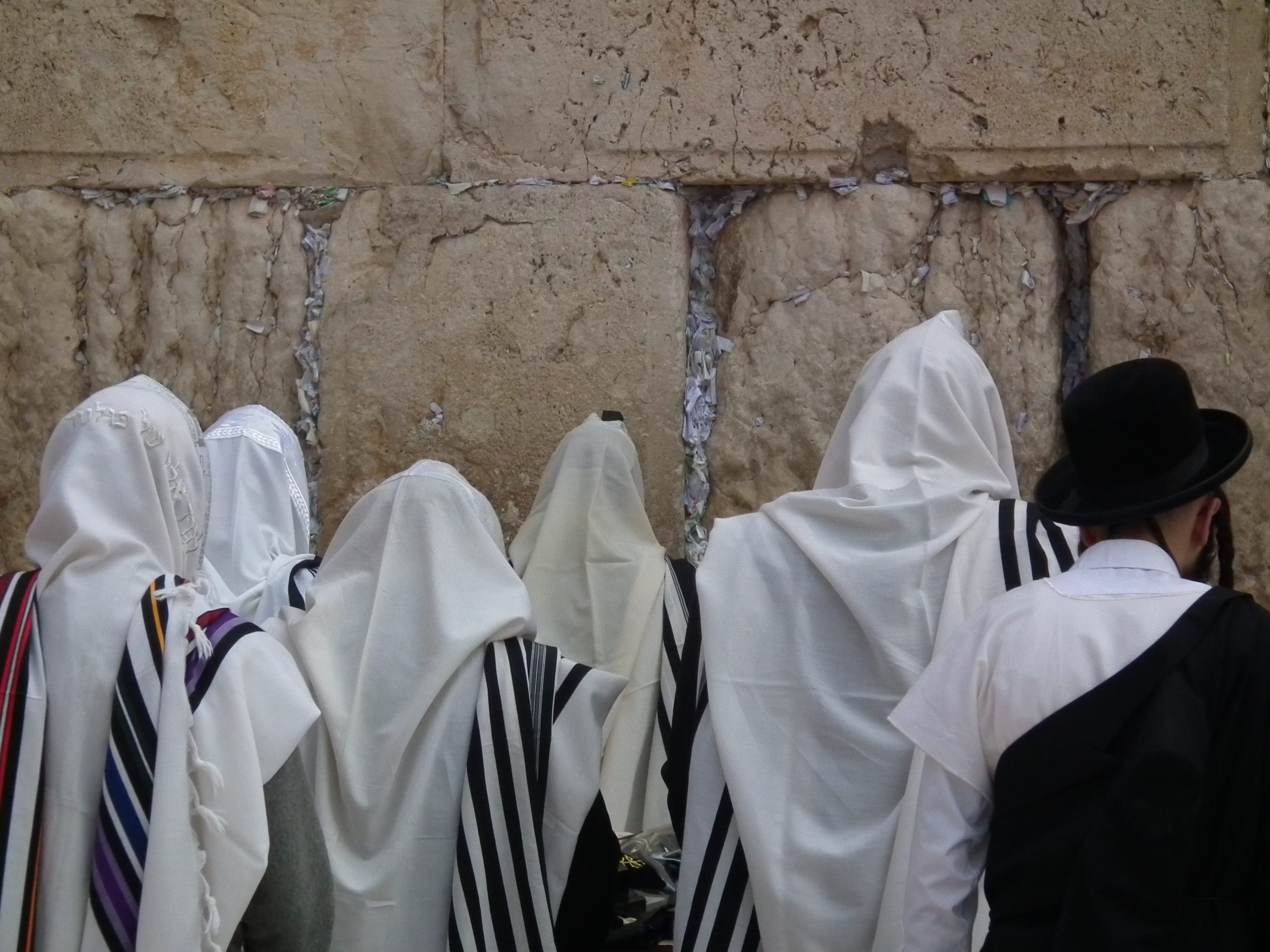
The Korban and Tefilla
After Moshe ascended Mount Sinai, the first mitzvos presented concerned the Mishkan, its vessels, the clothes of the kohanim and the daily korbanos. The Torah says that there should be two regular offerings, one in the morning and one in the afternoon.
Rashi and others (1) understand that the parshiyos are not in sequence — the Mishkan was not initially part of the plan, but was only a consequence of the sin of the Eigel Hazahav. Although the narrative of the Eigel Hazahav comes later (next week’s parsha), there was no need for the Mishkan and korbanos prior to the sin (2). We must say that Moshe was only told about the Mishkan following the Eigel Hazahav. Now they needed an atonement process — the Mishkan and the korban are part of that process.
After the destruction of the Beis Hamikdash, the Rabbis instituted that the shemona esreh prayer should be said. It is davened three times daily — morning and afternoon in place of the regular korbanos, and in the evening, corresponding to the burning of the leftovers on the altar.
The main part of the korban itself is the tefillos which are said at the time of the offering (Radak, Sefas Emes). In our day, without the Beis Hamikdash and the sacrifices, we have no choice but to reach for the essence of the sacrifice — the request of the heart, and offer the pleading of our hearts to Hashem.
Tefilla Entails Pleading
Tefilla involves request. This is implicit in the mishna (Brochos 4:4, Gemara 28b) and the halacha as stated by the Rambam (Hilchos Tefilla) and Shulchan Aruch (OC 98). We have often discussed the question — how is tefilla considered avoda (‘service of the heart’) (Ta’anis 2a)? How are we serving Hashem by making requests from Him?
The Rambam explains that the purpose of tefilla is to remember Hashem, love and fear Him (MN 3:44). The Ba’alei Musar, as well, explain that we show our trust in Him by davening (3). We remind ourselves who’s really in charge.
Yet, as the Tola’as Yaakov explains (4), tefilla is not merely proclaiming belief, but is a mitzva of action. It accomplishes — through tefilla the world is sustained.
Hashem wants us to ask Him — we should ask for things which give delight to the King (Yismach Moshe, Eikev). It’s important to remember to ask for others and for Hashem’s plans to be fulfilled (Rav Chaim Volozhon).
Controversies
In the last issue, we discussed the debate between the Rambam (Maimonides) and Ramban (Nachmanides). The Rambam learns that there is a daily obligation on the Torah level to plead before Hashem, while to the Ramban the Torah’s obligation is only at a time of tzar (pain or trouble).
We also discussed how Rava criticized Rav Hamnuna for davening at length. Rava’s criticism was that Rav Hamnuna was limiting his Torah learning, which he called ‘eternal life’ for prayer, which he termed ‘temporal life.’
The Chasom Sofer explained that Rava learned as the Ramban did: The obligation of prayer (on the Torah level) is only at a time of tzar. Why was Rav Hamnuna davening so much, every day? Perhaps he was always in tzar? No, a Talmid Chochom does not have constant tzar — his learning keeps him removed from the travails of this worldly existence!
Interestingly, Rav Yeruchom Levovotz (as recorded in Da’as Torah, Beshalach) came to the opposite conclusion. In order to defend the Jews in our tefillos, we must see every day as a time of great tzar. Even if we live in apparent comfort, our enemies are ready to pounce on us at any instant…
___________________________
1. Radak, the Seforno, Abarvanel and quite possibly the Rambam. Several Midrashim state this view.
2. See Seforno, Kavanos Hatorah (often printed in Bereishis, sometimes in Vayikra). Korbanos before Matan Torah were voluntary offerings (Ibid.).
3. Chochma Umusar of Kelm. Tov Halevanon, a commentary to Chovos Halevavos, also understands that one of the purposes of tefilla is show our trust in Hashem.
4. Tola’as Yaakov, Introduction. See Yismach Moshe, Eikev.


